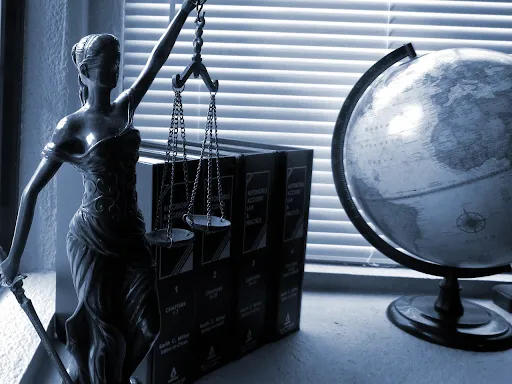legal
Injury to Compensation Understand Personal Injury Settlement

Facing the aftermath of a personal injury incident is an overwhelming process, encompassing not just physical recovery but also emotional healing. An often underestimated but equally significant challenge is managing the paperwork and stress of personal injury claims and settlements. The maze of legal procedures, negotiation tactics, and the general unpredictability can be daunting.
This article discusses establishing liability, entering negotiation phases, making decisions about settlement acceptance, and the disbursement of funds. Whether your case settles out of court or proceeds to trial, the objective is to prepare you with a basic understanding of what to expect.
Understanding the Settlement Journey
The path towards securing a personal injury settlement starts with establishing fault. This critical stage involves an in-depth collection and scrutiny of all available evidence such as medical documents, police reports, and statements from witnesses. The goal is to convincingly prove that your injury resulted directly from the negligence or intentional act of the defendant.
Once fault is established, the next phase is negotiation. Here, your personal injury attorney enters into discussions with the defendant’s insurance company regarding possible settlement amounts. Some cases find resolution during this stage while others, due to failure in reaching an agreement, may proceed to court.
Court Trials vs. Settlements
The choice between taking a personal injury case to trial or settling out of court depends on several aspects. These include the strength of your evidence, the severity of your injury, and your readiness to face the often lengthy and unpredictable trial process. Court wins may potentially result in larger compensation amounts, but they are never guaranteed and can be mentally taxing.
Settlements, alternatively, involve an agreement with the defendant or their insurance company without going to trial. This route can result in a quicker and more predictable resolution of your personal injury claim. However, the trade-off often involves a lower compensation compared to what could potentially be won in court.
Evaluating the Settlement Offer
The defendant’s insurance company’s initial settlement proposal may not fully cover your losses. It’s essential, therefore, to have a qualified attorney, such as a Beaumont personal injury lawyer, evaluate the offer and negotiate for a better deal on your behalf. Your attorney will factor in all of your damages, such as medical expenses, lost income, property damage, and emotional distress, to ensure the settlement offer accurately reflects your actual losses.
Settlement Acceptance
The decision to accept a settlement in a personal injury case should be made after a thorough consultation with your attorney. Accepting a settlement means giving up your right to pursue any future claims related to the incident against the defendant. It’s vital to ensure that the settlement sum adequately compensates you for your losses.
Disbursement of Settlement Funds
Upon acceptance of a settlement, the insurance company generally releases the funds within a few weeks. Be aware that part of the settlement will be allocated to cover your attorney’s fees and reimburse any costs your attorney incurred on your behalf. The remaining funds are used to settle any outstanding medical bills, with the rest disbursed to you.
Charting Your Path through Personal Injury Settlement
Having a clear understanding of what to expect during the personal injury settlement process is imperative. It prepares you to make well-informed decisions that serve your best interests. Remember, every personal injury case is unique, and so are the outcomes. As such, having an experienced personal injury attorney by your side can significantly improve the chances of a positive result.
Whether you decide to settle or take your case to trial, protect yourself with a legal expert who understands the nuances of personal injury law. Such a professional can provide invaluable advice and ensure your rights are preserved throughout the process. If you or a loved one is facing such a predicament, don’t hesitate to seek professional legal advice.
Familiarizing yourself with the steps involved in a settlement process, and having the right guidance and support, can significantly help prepare you to traverse the often complex landscape of personal injury law.





















































